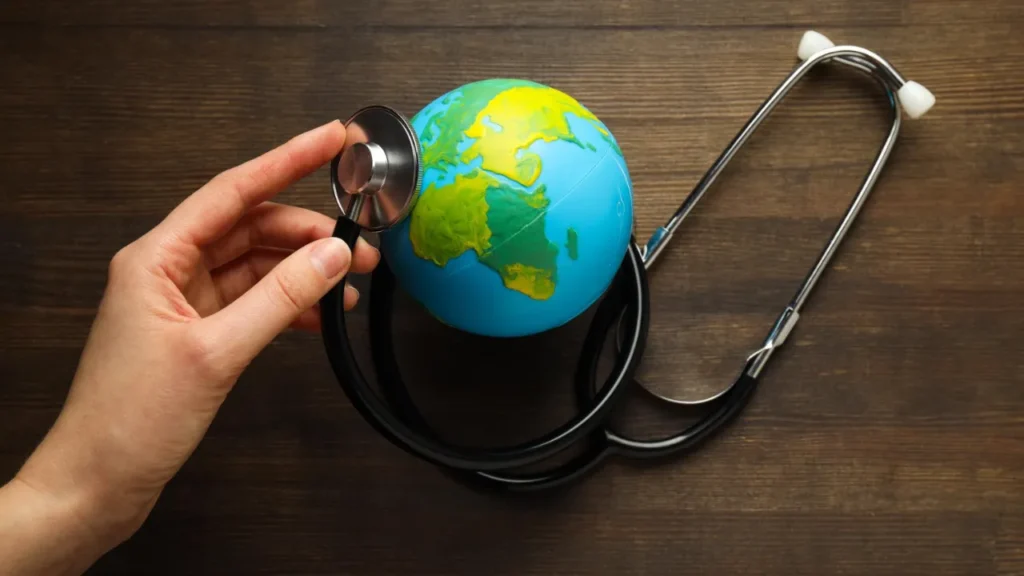
Enhancing Community Hardiness: Ghana’s Creative Method for Pandemic Preparation :
In light of the COVID-19 pandemic’s ongoing challenges, Ghana is proactively strengthening its public health infrastructure and improving community preparedness for any health emergencies. Co-organized by Ghana’s Ministry of Health, the World Health Organisation (WHO), and the UK Public Health Rapid Support Team (UK-PHRST), a recent three-day community readiness simulation exercise highlights the significance of community engagement and preparedness in reducing the effects of public health emergencies.
The simulation exercise, which brought together stakeholders from a variety of sectors, including health, local government, disaster management, and environmental agencies, sought to evaluate and enhance communities’ ability to recognise, report, and effectively address epidemic and pandemic potential outbreaks. The exercise, which took place in Ghana’s Eastern region, gave participants a chance to pinpoint the gaps, strengths, and priorities that are most important for improving community preparedness.
The WHO Representative to Ghana, Prof. Francis Kasolo, emphasised in his opening remarks the critical role that communities play in preventing, planning for, and responding to emergencies. Professor Kasolo emphasised the need of funding community-based outbreak response and the significance of early detection and grassroots health emergency containment.
The simulation exercise was arranged with cooperation from WHO, the Ministry of Health, and other partners, as noted by Dr. Claire Bayntun, Head of Capacity Strengthening at UK-PHRST. She emphasised how crucial it is to use technical know-how to give local communities the resources and information they need to better prepare for outbreaks in the future.
In his speech, Dr. Franklin Aseidu-Bekoe reaffirmed the importance of involving communities in pandemic preparedness and response initiatives on behalf of the Director General of the Ghana Health Service. In order to safeguard lives and livelihoods during health emergencies, Dr. Aseidu-Bekoe underlined the importance of collaborating with communities and acknowledging the critical role that community mobilisation and expertise play.
Stakeholders underlined the necessity of ongoing community involvement throughout the exercise to guarantee informed, involved, and empowered communities. In order to enable prompt response to health emergencies, Genevieve Dakurah, a midwife-in-charge from Kweakese CHPS in the Akwaku Afram Plains North district, underlined the significance of consistently giving important community actors vital information.
65 people from three communities spread across two districts in the Eastern Region participated in the simulation exercise, which was the first of its kind in Ghana. Participants obtained important insights that will guide the creation of the WHO Community Readiness Checklist and offer applicable lessons for other communities and nations through a series of scenarios intended to evaluate community readiness.
Projects like the community readiness simulation exercise demonstrate Ghana’s dedication to enhancing public health infrastructure and promoting community resilience as the nation navigates the difficulties presented by the COVID-19 pandemic and gets ready for upcoming health emergencies. Ghana is creating a more resilient and prepared future in the face of health emergencies by strengthening local communities and encouraging cooperation among stakeholders.